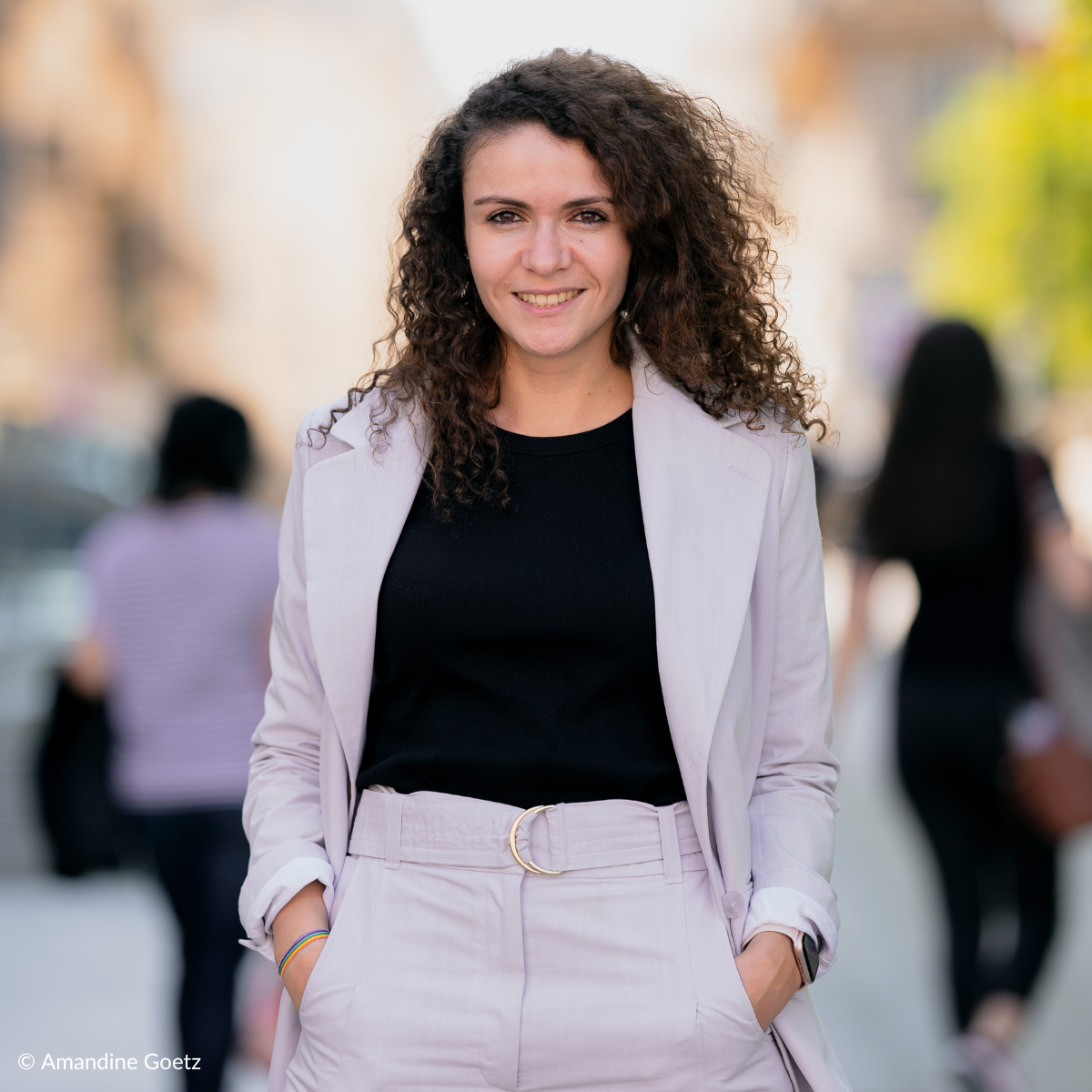Discover the portrait of Soraya Jaber, recognized as one of the most influential young entrepreneurs in France
07/03/2023
Mar 7 , 2023 read
At Novelis, International Women’s Rights Day is an opportunity for us to showcase our exemplary record of supporting women’s success in the workplace. We currently have a near 50% gender parity, which is not always common in the tech industry where women often struggle to make their mark.
In line with the women who inspire us daily, we would like to share interviews with female entrepreneurs and CEOs who share their experiences and recommendations for young girls who are the women of tomorrow in tech.

Soraya Jaber is a French self-taught entrepreneur and CEO of Opuscope. A pioneer in augmented and virtual reality technologies, she has raised over 8 million euros in public and private funding for her company and established partnerships with renowned technology companies such as Microsoft, Meta, Google, and Magic Leap. She has been recognized as one of the most influential young entrepreneurs in France and is dedicated to promoting diversity and inclusion in the technology industry. Soraya is also a renowned speaker and active in the technology community, as well as a mentor for women in entrepreneurship and technology.
Question 1: What did you want to do when you were a child and what do you do now?
When I was a child, there wasn’t a specific job that I wanted to do. On the contrary, I considered several different vocations. I had a hard time focusing and getting interested in just one job. I considered being a lawyer, a doctor, an actress… depending on my current passions, the people I met, the people who inspired me, and as a result, it could vary from week to week!
When I started my studies, I took a scientific high school degree with an option in art history, and I was supposed to go into medicine. But finally, in my senior year, I decided to follow what I was most passionate about: history and art. This shows that I really function on feelings and passion.
Finally, art history is quite different from what I do today because in 2023, I have been CEO and co-founder of Opuscope, a leading and pioneering company in immersive technologies (augmented reality, virtual reality) for 7 years now. As you can see, there has been a lot of evolution in what I wanted to do, and a lot of learning as well. I also took a gap year in 2016 to develop my student project, which was “how to reinvent access to art and history through new technologies,” which eventually became quite big, given where I am today!
Question 2: What difficulties did you encounter to get where you are today?
Throughout the entrepreneurial journey, we seized many opportunities with my co-founder. But yes, there were also difficulties as it is not an easy path and requires resilience. We operate in an extremely innovative sector, and when we started in 2016, we thought that by 2020, everyone would be equipped with a pair of smart glasses. We believed that there would be a need for a software platform to easily create content on these new platforms without requiring technical skills (such as a developer), targeting creative individuals. Developers represent barely 0.3% of the population, and unfortunately, even today, although there are more and more women, there is still an overwhelming majority of men in these fields.
Our objective was, therefore, to promote more inclusivity in these new technologies by facilitating access to these seemingly complex tech tools. Every mission and task that I had to undertake within the company often represented something new for me because this co-created business is the first company in which I started working. We started from scratch, which allowed me not to incorporate any biases that I might have had in other companies. I would say that the biggest difficulty was at the beginning of the journey: lack of self-confidence, expertise, and knowledge. Also, investors had difficulty trusting a young woman entrepreneur who had never attended a business school. My luck was to have been very well surrounded from the beginning, and for me, that is the most essential thing when embarking on this type of adventure.
Question 3: What advice would you give to your younger self to achieve your dreams?
What I would have liked to tell myself as a child is that the expression “curiosity killed the cat” is the opposite! In my opinion, one should be curious, open to the world, open to others, not be afraid to try things. The best time to start a business is when you are young and there are no stakes. Of course, I made mistakes in the past seven years, but the fact is that the company is still thriving, and our team is flourishing.
My main advice is not to be afraid to start, to learn from people who have tried it, and who work in the core business that you also want to approach. When you are a child, what is important is to meet others, to continue to dream, to learn, and above all, to realize that learning does not stop at school: one must continually train because the world is constantly evolving.
Question 4: Another piece of advice for young girls who hesitate to pursue a career in science?
Personally, having done a scientific BAC opened up all career paths for me. Proof of this is that I then went on to study art history. It all depends on our passions and what we want to do, but a scientific background gives us the choice and the opportunity to choose. Let’s also keep in mind that it is scientists, researchers, and entrepreneurs who build the world of tomorrow. Today’s new technologies provide many answers to the challenges of tomorrow. And it is absolutely essential that women, who represent just over half of the population, are as well represented as men in strategic positions in companies so that we can have an impact in decision-making.
